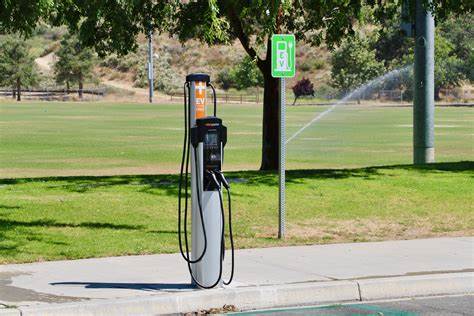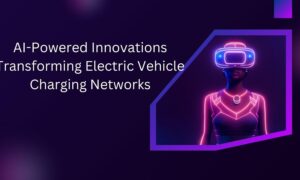There has been a rise in the demand for EVs as consumers try to reduce their carbon footprints. The increasing number of electric vehicles (EVs) on the road, however, necessitates a well-developed network of charging stations. This essay will discuss how EV charging stations are paving the road for a greener tomorrow.
EV Charging Stations and Their Importance
Electric vehicle charging stations are crucial to achieving a smooth and rapid transition to environmentally friendly modes of transportation. The owners of electric vehicles can get their batteries charged at these locations. Level 1, Level 2, and DC Fast Charging stations are only some of the options for recharging an EV. The most common application for the slowest level of chargers, Level 1, is in the home. Level 2 chargers are the most advanced and can be used in both public and private locations including parking garages and private houses. The fastest public charging stations are DC Fast Charging stations, which can be found along highways and in busy downtown areas.
There are numerous advantages to installing charging stations for EVs. Charging stations offer a quick and secure option for EV owners to replenish their batteries. It’s more convenient for people to adopt EVs into their daily lives because they can charge their vehicles while out and about. With access to convenient charging stations, EV drivers can relax knowing they can always power up their vehicles.
What EV charging stations do for the planet
Charging stations for electric vehicles have substantial positive effects on the environment. Electric vehicles can aid in the fight against climate change because they emit fewer pollutants than gas-powered vehicles. But, a well-developed network of charging stations is crucial for fully realizing the environmental benefits of EVs. Owners of electric cars (EVs) might be deterred from taking their vehicles on long trips or might be compelled to rely on traditional fuel sources if there weren’t enough charging stations available.
By promoting the use of renewable energy sources like solar and wind, charging stations also aid in the fight against greenhouse gas emissions. In order to supply electrical energy for electric vehicles, several charging stations have installed solar panels. This makes EVs even more environmentally friendly and viable as a mode of transportation.
Cost Savings from Installing Charging Stations for EVs
Investing in charging stations for EVs can help revitalize neighborhoods and boost local economies. Jobs in the installation and maintenance of charging stations can be created due to the need for skilled labor. Electric vehicle (EV) owners may also be more likely to visit areas with charging stations, which is good for tourism and local economies.
Investing in charging stations for electric vehicles helps mitigate the risks associated with relying too much on fossil fuels. Businesses and residents alike will reap the rewards of a more reliable and long-lasting energy supply if we make the switch to electric vehicles and the associated charging infrastructure.
The Prospects for Future EV Charging Infrastructure
The outlook for EV charging stations is promising. There is an increasing need for charging stations as the number of electric vehicles on the road increases. The increase of charging infrastructure can assist the growth of the EV market, while technological advances are making recharging EVs easier and more efficient. For example, bi-directional charging allows electric vehicles to both receive power from and contribute to the grid, while wireless charging allows EVs to be charged simply by parking on a properly equipped pad.
The extension of charging infrastructure should be a societal priority, and it should be made available to as many people as possible. Charging stations should be installed in public spaces, highways, and commercial areas, and this should be a joint effort between governments and businesses. This will aid in the expansion of the EV market and facilitate people’s change to greener modes of transportation.
The development of charging infrastructure can also be aided by individual efforts. As an EV owner, you may want to think about getting a charging station for your house or office. It will be more convenient for you to charge your EV, and for other EV drivers as well.
Conclusion
In conclusion, charging stations for electric vehicles are an essential part of the move toward environmentally friendly transportation. These make it easy and convenient for those who own electric vehicles to recharge their batteries, cutting down on pollution and helping the environment. In addition to helping local economies and providing new employment opportunities, investing in charging infrastructure is a good idea. The future of EV charging stations is bright as new technologies and improvements are introduced to the market. Together, we can build a more sustainable and environmentally friendly future by increasing access to charging stations.



































